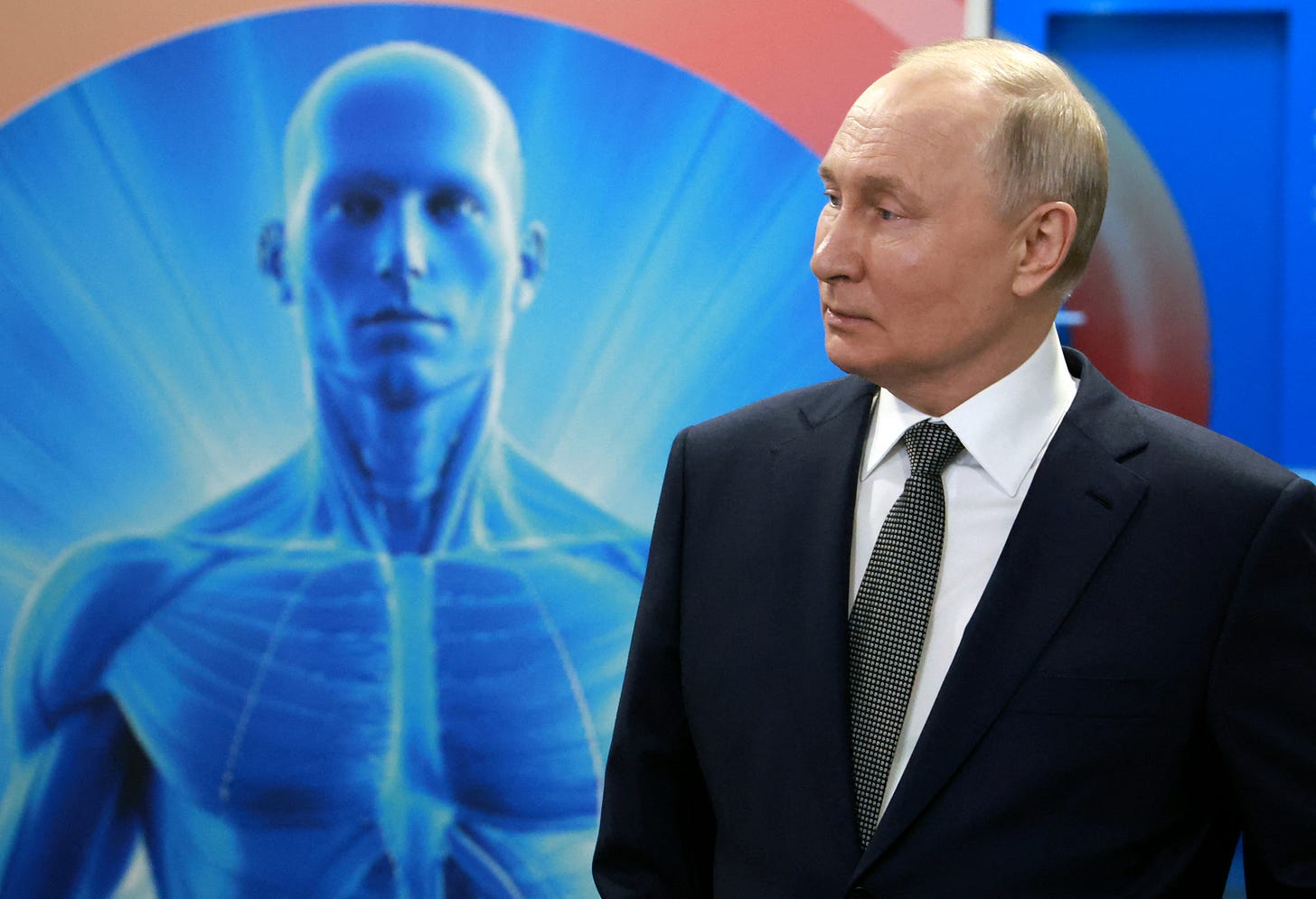THE IRON-CLAD PIÑATA
Putin is an enemy the West cannot topple—so why does Biden keep swinging?

President Biden’s foreign policy problems in the Middle East and Ukraine are daunting, especially in an election year, but the war between Russia and Ukraine could be nearing a military endgame, and not via negotiations. Vladimir Putin’s military is more entrenched inside Ukraine than ever, and the undermanned and under-equipped Ukraine military is facing a stalemate at best and the permanent loss of four oblasts. In essence, it is a defeat.
The Russian president’s unchallenged re-election over the weekend was a farce by democratic standards, especially coming after the death last month of the imprisoned dissident Alexei Navalny. The 77 percent turnout was the largest since the fall of the Soviet Union, and Putin won 87 percent of the vote. “It was the same process” as in earlier Russian elections, a knowledgeable American official caustically told me. “The Russians voted that way because it was in their interest to do so. The people had to vote.”
Even amid a difficult and costly war that he initiated, Putin remains firmly in control of Russia, despite a series of Western sanctions and wishful thinking in Washington that its military expertise, weapons, and enthusiasm for the war would loosen his grip on power. Blindfolded by ideology, Biden wants the candy of regime change, but Putin has proven to be an iron-clad piñata.
The American president keeps taking his swings. It was not surprising that Biden chose to turn to Putin and the Ukraine war at the start of his State of the Union speech on March 7. He and his foreign policy staff have put Putin’s diminishment at the top of their to-do list since taking office. He told the Congress that Russia “is on the march” and Putin’s intent is “to sow chaos throughout Europe and beyond. If anybody in this room thinks Putin will stop at Ukraine, I assure you, he will not. . . . History is watching . . . Europe is at risk.”
Keep reading with a 7-day free trial
Subscribe to Seymour Hersh to keep reading this post and get 7 days of free access to the full post archives.



